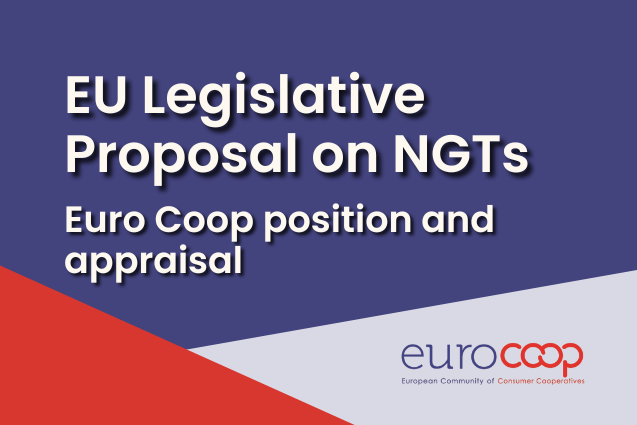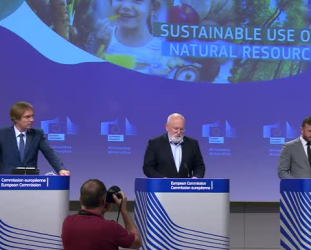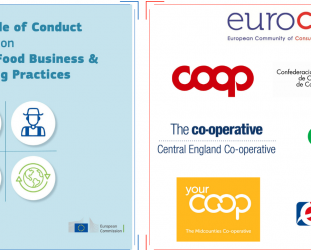Euro Coop Position on New Genomic Techniques

Euro Coop calls on the EU legislators to uphold the strict regulation and avoid any deviations from the current legislative framework for GMОs, thereby ensuring maximum consumer protection and information by maintaining the precautionary principle. Failure to do so will jeopardise food producers and consumers’ rights of informed choice and compromise the sustainability of Europe’s food system by supporting industrial food production and monocultures.
Consumer protection, information and empowerment are at the heart of Euro Coop’s raison d’etre, since we represent 20 national organisations of consumer co-operatives with over 30 million individual consumers, who are the member-owners. Our evaluation of the possible impact of new technologies and their products includes the application of the precautionary principle and the extent of their contribution to valuable and socially sustainable solutions, consumer freedom and the right of informed choice. In decades past, Euro Coop members have ensured their own brand products as GE (genetically engineered) free and have supported the full regulation of GMOs, with a clear mandatory labelling scheme and a laboratory network to check legal compliance.
Euro Coop fully endorses the Judgement of the European Court of Justice (ECJ) of 2018 that ruled that mutations should have been considered as genetic modifications covered by the Directive 2001/18. Furthermore, NGTs make use of molecules assembled outside the cell in a way which cannot be expected to happen in nature and that is then forced into the receiving cell akin to GMOs. This qualifies them as transgenic techniques as defined in the Directive’s Article 2.2.a and in Annex I A.
On 5 July, the EU Commission adopted the text of the new legislative proposal to regulate the release into the environment of plants obtained by NGTs and their use as food and feed. The proposal reflects the initial intention of the EU Commission to deregulate certain GMOs as defined by European Court of Justice, but it does so more on a political basis, rather than a scientific basis.
Euro Coop believes the proposal:
 Ignores science
Ignores science
Practically, certain genetic techniques can be used to generate plants that will be deemed safe assuming their genome could be the result of natural mutation or traditional mutation or breeding with compatible species.
 Risks organic production
Risks organic production
Although NGT-1 remain banned from organic products, the lack of basic information and ex-post traceability and monitoring makes it quite difficult to apply.
 Contradicts policy
Contradicts policy
The lack of any traceability and monitoring will make it almost impossible for the EU Commission to gather the necessary information from proponents / Member-States in view of preparing the monitoring report expected after the first 5 years.
 Compromises freedom of choice
Compromises freedom of choice
The new rules would reduce the freedom of choice of food producers and consumers and increase the uncontrolled proliferation of plants and products whose safety is merely conceptual and lacks scientific ground; disregarding the techniques, some of which are identical to GMOs, used to create new varieties.
 Bans the right to ban
Bans the right to ban
Member-States would lose the right to ban cultivation on their territory for any NGT plants notified or authorized at EU level.
Read our Appraisal of the Draft Proposal here
Read our Position on NGTs here
Latest News

EU Commission Unveils New Legislative Proposal for Sustainable Use of Natural Resources
The new EU Commission measures include a soil monitoring law to combat soil degradation, the...
Latest Stories

Press Release: EU Code of Conduct
Today, the European Commission unveiled the long-awaited EU Code of Conduct on Responsible...

